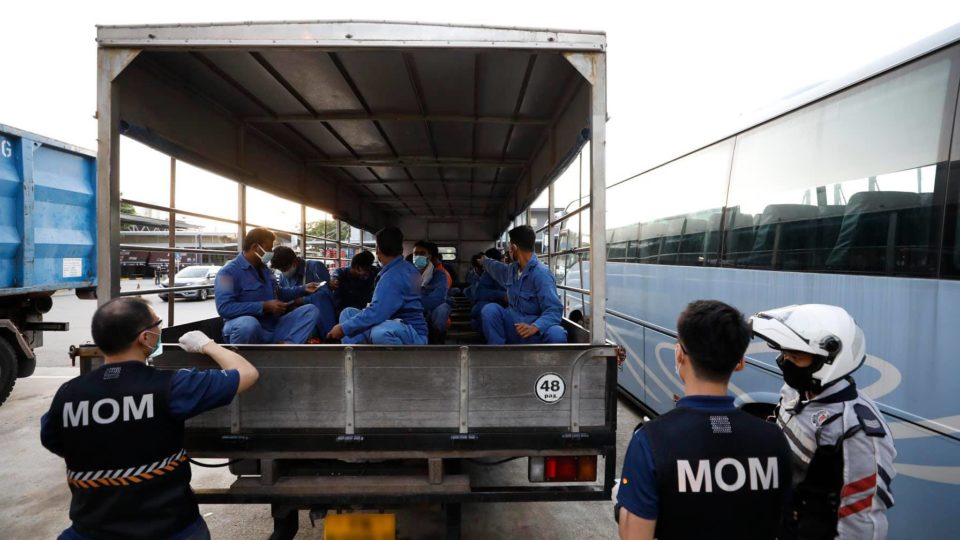Migrant worker rights advocates have suggested that restrictions on changing jobs should be relaxed so workers can switch employers more easily due to job insecurity.
The Humanitarian Organization for Migration Economics, or HOME, said Saturday that the worker’s futures should not lie solely in the hands of their present employers. It was responding to COVID-19 task force co-chair Lawrence Wong’s assertion two days earlier that whether the workers still had a job when they emerge from quarantine will be up to their employers and the state of the economy.
HOME said a number of workers had already contacted the nonprofit to say they have been terminated and are awaiting deportation. It also highlighted that some migrant workers are deeply indebt in part due to expensive job recruitment fees and loans to finance their relocation to work in Singapore.
The nonprofit suggested that the Manpower Ministry allow migrant workers “to switch employers without having to obtain the permission of their current employers and facilitate job-matching at a national level.”
“An online platform can be made available for companies who are hiring so that others who intend to retrench their employees can match their workers to those who need them,” it wrote online. “[The ministry] can also advise employers who are intending to hire workers from abroad, to consider hiring applicants from this platform first.”
Roughly 20,000 migrant workers are expected to be discharged this month from isolation facilities such as the Singapore Expo and the Changi Exhibition Centre and return to their dorms or other accommodations.
The COVID-19 task force also said last month that it aims to put workers back to work after “circuit breaker” measures expire, and plans to test all 300,000-plus migrant workers to make sure that they are free of the coronavirus which has ravaged their community and continues to spread.
Confirmed coronavirus cases hit 34,884 after 518 new cases were reported last night, of which 516 involved those in worker dormitories. The official death toll stands at 23.
On Thursday, Wong had told a reporter that migrant workers would be cared for “during this period when they are in quarantine.”
“But once workers are recovered and are released to the workforce, whether or not they continue to work depends on the employers,” he added.
Wong said employers might decide to “slow down” and businesses fold if the state of the economy remains “dampened” and demand weak. Foreign workers, including expatriates, may “decide to go back” if they are unable to find jobs amid an economic downturn.
Singapore is on track to hit its worst recession since independence in 1965. The Trade and Industry Ministry last week further downgraded economic growth, bumping its expected contraction up to between 4% and 7%. The unemployment rate of residents in the first quarter of 2020 increased from 3.2% to 3.3%.
HOME said it understands the country’s rationale to prioritize job retention for citizens, but also noted that it was important not to “ignore” migrant workers, especially those with low wages who have contributed to Singapore’s economy.
“Construction workers are particularly vulnerable as many stand to lose their jobs due to uncertainties in the construction industry,” HOME wrote.
“Most pay recruitment fees amounting to several thousand dollars. Loans and mortgages are also taken out in their home countries to finance their journeys to work in Singapore,” it continued. “Returning home in debt would have devastating consequences for them and their families, who might be facing additional financial hardship in light of Covid-19.”
Other stories to check out:
20,000 workers may be discharged by June as dorm outbreaks continue
Singapore preps another S$33B in recovery funds




